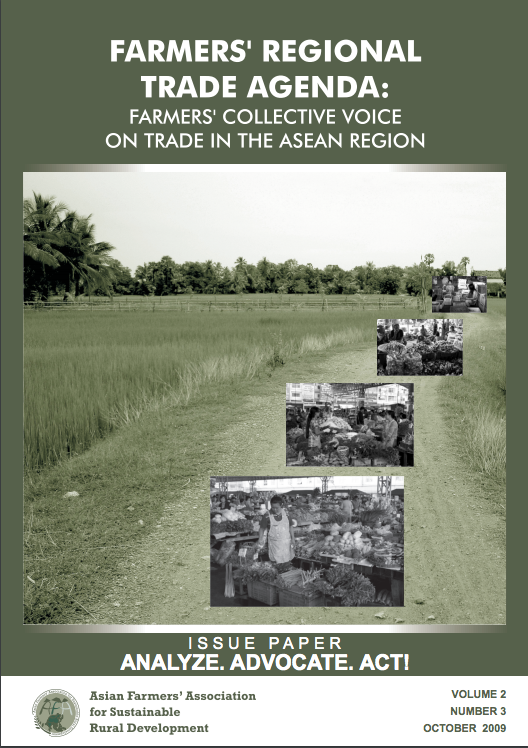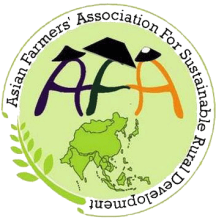The Association of Southeast Asian Nations (ASEAN) has been trying hard to go into free trade agreements (FTAs) with different countries. It believes that this will increase trade and help members sell their export products to more markets in other countries. It also wants to make ASEAN the world's center of agricultural production. But in opening up markets and increasing trade, more imported goods from other countries can also come in.
These FTAs were supposed to be good for farmers, but actually, farmers have not been benefitting from these opportunities. From the experience of some countries, farmers benefit from FTAs only if they can compete in the international market and if they own land and other resources for production so that they can have the power to decide on what to plant on the land and how to use the resources.
Policies like FTAs have big impacts on farmers and agriculture, so it is important that farmers are able to voice their concerns and suggest ways to protect their sector and make sure that agriculture is developing.
This issue paper presents a regional trade agenda agreed on by several farmers' organizations from the ASEAN region. This trade agenda includes recommendations that will help make small farmers more competitive. It also suggests ways of ensuring that farmers and the agricultural sector are protected from the harmful effects of opening up markets to international trade.
The farmers proposed policies and programs that will make sure that poor families have food on their tables and have reliable sources of income. They also suggested ways of achieving rural development and helping solve poverty in their countries.
This paper also describes the situation of farmers and the agricultural sector in the region, focusing on five ASEAN countries -- Indonesia, Philippines, Thailand, Cambodia, and Vietnam.


